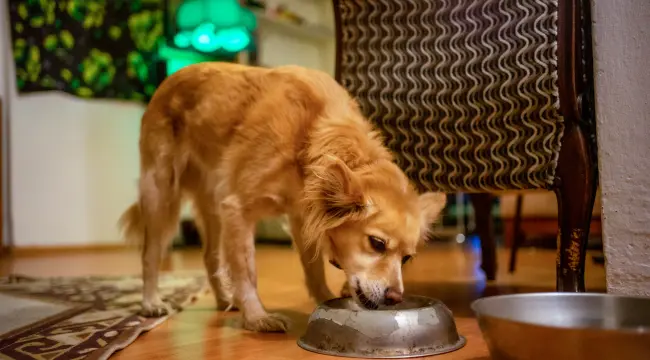Understanding Which Human Foods Are Safe and Harmful for Dogs
Human Foods Dogs Can and Can’t Eat

Devoted dog enthusiasts are often individuals filled with kindness. We open our hearts and homes to our furry friends, and some fortunate pups even get to snuggle at the foot of our beds. It seems natural to assume sharing our favorite human foods with our dogs wouldn’t cause any harm, right? However, that’s not always the case. Foods that we humans can easily digest, including fruits and vegetables, can sometimes create serious health issues for dogs.
Conversely, there are certain human foods that can be safely included in a dog’s diet, offering health benefits like improved joint health, fresher breath, and immunity to allergies.
But, before you start sharing the food you love with your dog, it’s crucial to know which foods are safe and which could warrant a frantic trip to the emergency vet. Even feeding too much of a healthy food can result in canine obesity, a significant health risk for dogs in the U.S. Hence, it’s always best to make high-quality dog food the centerpiece of your dog’s diet.
Human Food Safety for Dogs
Almonds: Almonds are not recommended for dogs. While not as toxic as macadamia nuts, almonds pose a choking hazard and can obstruct or damage a dog’s windpipe if not properly chewed. Additionally, salted almonds can cause water retention, which could be life-threatening for dogs with heart conditions.
Bread: Dogs can eat bread, but it doesn’t offer any substantial health benefits. Bread lacks nutritional value and can contribute to weight gain due to its high carbohydrate and calorie content. Homemade bread is preferable to store-bought varieties, which often contain unnecessary preservatives. However, it’s best to limit or omit bread from your dog’s diet.
Cashews: Dogs can enjoy cashews occasionally and in moderation. These nuts provide beneficial nutrients like calcium, magnesium, antioxidants, and proteins. Although they contain less fat than other nuts, overconsumption can lead to weight issues and related health conditions. Make sure to give your dog unsalted cashews.
Cheese: Cheese can be a tasty treat for dogs, provided they are not lactose intolerant. It’s advisable to choose low-fat cheese options like cottage cheese or mozzarella since many cheeses can be high in fat. Some dogs even enjoy dog-specific treats like dried cheese Himalayan dog chews.
Read More: Can Dogs Eat Babybel Cheese?
Chocolate: Dogs should never consume chocolate. Chocolate contains methylxanthines, toxic substances that can interfere with a dog’s metabolic process. Even small quantities of chocolate, especially dark chocolate, can cause symptoms like diarrhea and vomiting. In large amounts, chocolate can lead to seizures, irregular heart rhythms, and even death. If your dog ingests chocolate, contact a veterinarian or the Pet Poison Helpline immediately.
Cinnamon: It’s best to keep dogs away from cinnamon. Although not toxic, cinnamon and its oils can cause irritation in dogs’ mouths and lead to discomfort and sickness. Excessive cinnamon can lower a dog’s blood sugar excessively and cause symptoms like diarrhea, vomiting, heart rate changes, and even liver disease. Inhaling cinnamon powder can also lead to breathing difficulties, coughing, and choking.
Coconut: Indeed, dogs can enjoy coconuts. This tropical treat is rich in lauric acid, which helps fight off bacteria and viruses. It’s also beneficial for remedying bad breath and skin conditions such as itchy skin and flea allergies. Coconut milk and oil are also dog-friendly. Just ensure that your pup doesn’t chew on the hairy outer shell, which could get stuck in their throat.
Corn: Dogs can safely consume corn, a common ingredient in many dog foods. However, corn cobs can be difficult for dogs to digest and may lead to intestinal blockage. So, if you’re sharing corn with your dog, make sure it’s off the cob. Alternatively, you could get a corn-themed chew toy.
Eggs: Eggs are safe for dogs to eat, as long as they’re thoroughly cooked. A great source of protein, cooked eggs can help soothe an upset stomach. But remember, raw egg whites may lead to a biotin deficiency, so make sure to fully cook the eggs before serving them to your pet.
Fish: Fish is a healthy food option for dogs, packed with beneficial fats and amino acids. Salmon and sardines are particularly good, with salmon offering plenty of vitamins and protein, and sardines providing easily digestible bones for extra calcium. Make sure to remove all small bones, except for those in sardines. Always serve fish cooked and cooled, and limit it to no more than twice a week.
Garlic: Dogs should avoid garlic. As a member of the Allium family, which also includes onions, leeks, and chives, garlic is five times more toxic to dogs. It can lead to anemia in dogs, resulting in symptoms like pale gums, increased heart rate, weakness, and even collapse. Garlic and onion poisoning can have delayed symptoms, so monitor your dog for a few days if they’ve ingested any.
Ham: Dogs can eat ham, but it’s not the healthiest choice. Ham is high in sodium and fat, so it’s okay to share a small piece occasionally, but it shouldn’t become a regular treat.
Honey: Dogs can consume honey. Rich in numerous nutrients like vitamins A, B, C, D, E, and K, potassium, calcium, magnesium, copper, and antioxidants, small amounts of honey can help dogs with allergies by introducing small amounts of pollen into their system. Besides eating honey, it can also be used topically to treat minor cuts and burns.
Ice cream: Dogs should not eat ice cream. Though it’s a delightful treat, ice cream is high in sugar and should not be shared with your dog. Additionally, some dogs are lactose intolerant. As an alternative, consider freezing pieces of strawberries, raspberries, apples, and pineapples to give your dog a healthy, icy treat.
Macadamia nuts: Dogs must never consume macadamia nuts. These nuts are extremely toxic to dogs, causing symptoms like vomiting, fever, mobility issues, and lethargy. More seriously, they can impact the nervous system. Never let your dog eat macadamia nuts.
Milk: Dogs can have milk, but with caution. Some dogs are lactose intolerant and struggle to digest milk. While it’s okay for dogs to have a little milk, owners should be aware of signs of lactose intolerance and might want to stick to water for hydration.
Peanut Butter: Absolutely, dogs can enjoy peanut butter. It’s a fantastic protein source and is packed with beneficial fats, vitamins B and E, and niacin. Always go for raw, unsalted varieties and make sure to check the label to ensure it’s free from xylitol, a sugar substitute that’s harmful to dogs.
Peanuts: Indeed, peanuts are perfectly safe for dogs to munch on. Unlike almonds, they’re full of healthy fats and proteins that can be good for your dog. However, don’t overdo it, as excessive fat can cause pancreatic problems. And remember, unsalted peanuts are the way to go.
Popcorn: Dogs can indeed snack on popcorn. As long as it’s air-popped, without butter or salt, it can be a fun treat. Popcorn is a source of riboflavin, thiamine, minimal amounts of iron and protein, all contributing to eye health and digestion. Just make sure all kernels are fully popped to prevent choking.
Pork: Dogs can enjoy pork. It’s a protein-rich meat that’s easily digestible and packed with amino acids. Plus, pork has more calories per pound than other meats and may be less likely to cause an allergic reaction in some dogs.
Quinoa: Quinoa is dog-friendly. You’ll find this nutritious grain in some premium dry dog foods. Its high nutritional value makes it a healthier alternative to common starches like corn, wheat, and soy frequently found in kibble.
Salmon: Cooked salmon is a great choice for dogs. It’s rich in protein, healthy fats, and amino acids, promoting good joint and brain health and boosting the immune system. However, avoid feeding your dog raw or undercooked salmon as it could contain parasites that can make dogs seriously ill. Always cook salmon thoroughly (at least 145 degrees Fahrenheit as per FDA recommendation) to kill any parasites.
Shrimp: Dogs can enjoy some shrimp every once in a while. Just make sure they’re fully cooked and all shell parts (tail, head, and legs) are removed. Shrimp are packed with antioxidants, vitamin B-12, and phosphorus, and they’re low in fat, calories, and carbohydrates.
Tuna: Dogs can have tuna, but only in moderation. Fresh, cooked tuna is a great source of omega-3 fatty acids, promoting heart and eye health. Canned tuna, however, contains some mercury and sodium, which should be limited. Small amounts of canned tuna and tuna juice, prepared in water, not oil, and without spices, are acceptable occasionally.
Read more: Can Dogs Eat Tuna?
Turkey: Dogs can safely eat turkey. Just remember to remove any excess skin and fat, and always check for bones that can splinter and cause digestive issues. Keep the meat plain, avoiding excess salt, seasonings, onions, or garlic.
Wheat/Grains: Dogs can certainly eat wheat and other grains. They don’t need to be grain-free. Wheat and corn, for example, are good protein sources and provide essential fatty acids and fiber. If your dog has specific allergies, you might need to avoid grains. Always consult with your vet for dietary advice.
Yogurt: Plain yogurt is a great snack for dogs. But some dogs may struggle to digest dairy products. If your dog can handle it, the active bacteria in yogurt can strengthen their digestive system with probiotics. Always choose plain yogurt and avoid any with added sugar or artificial sweeteners.
Read more: Human Foods Dogs Can and Can’t Eat



